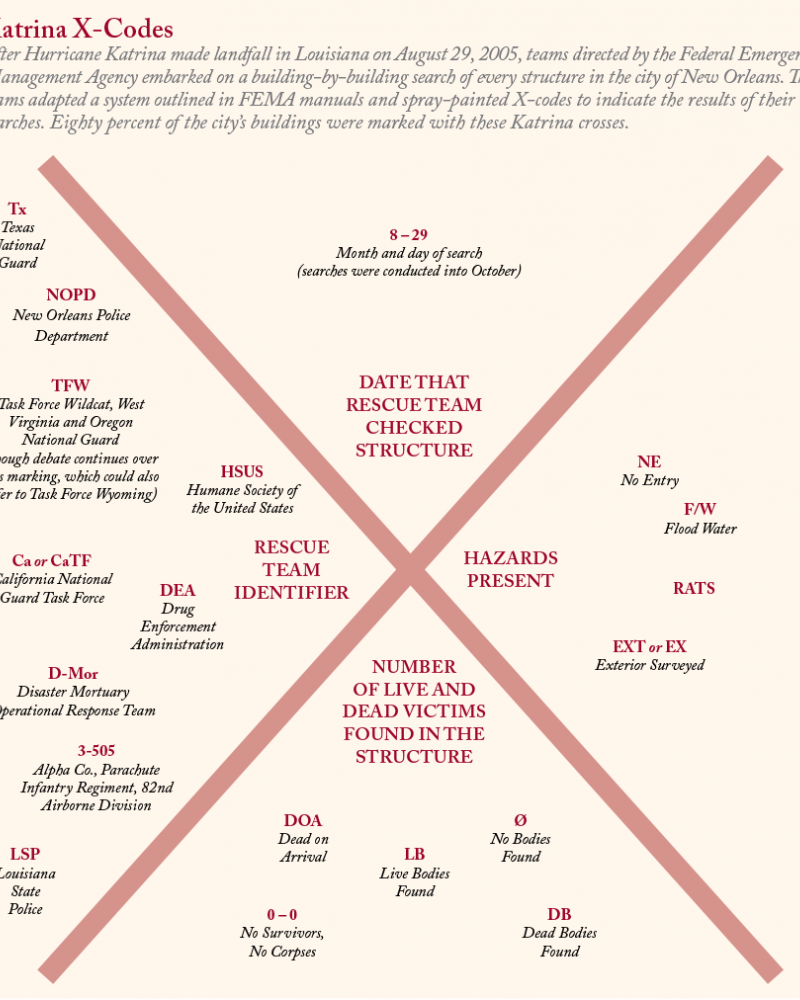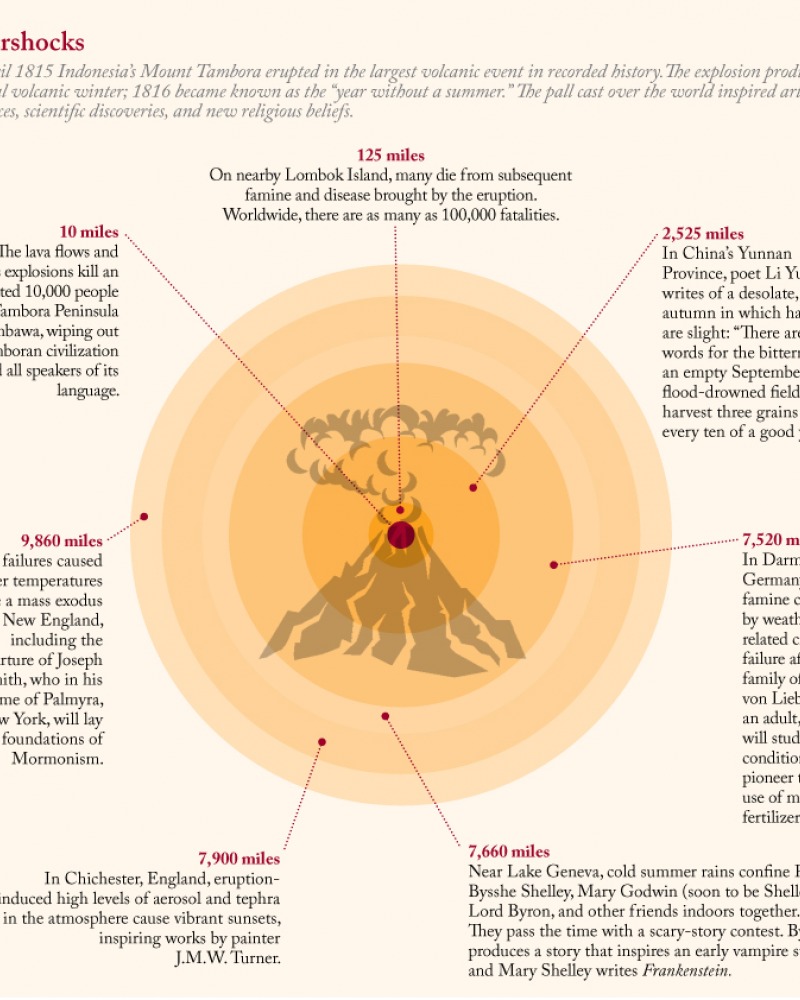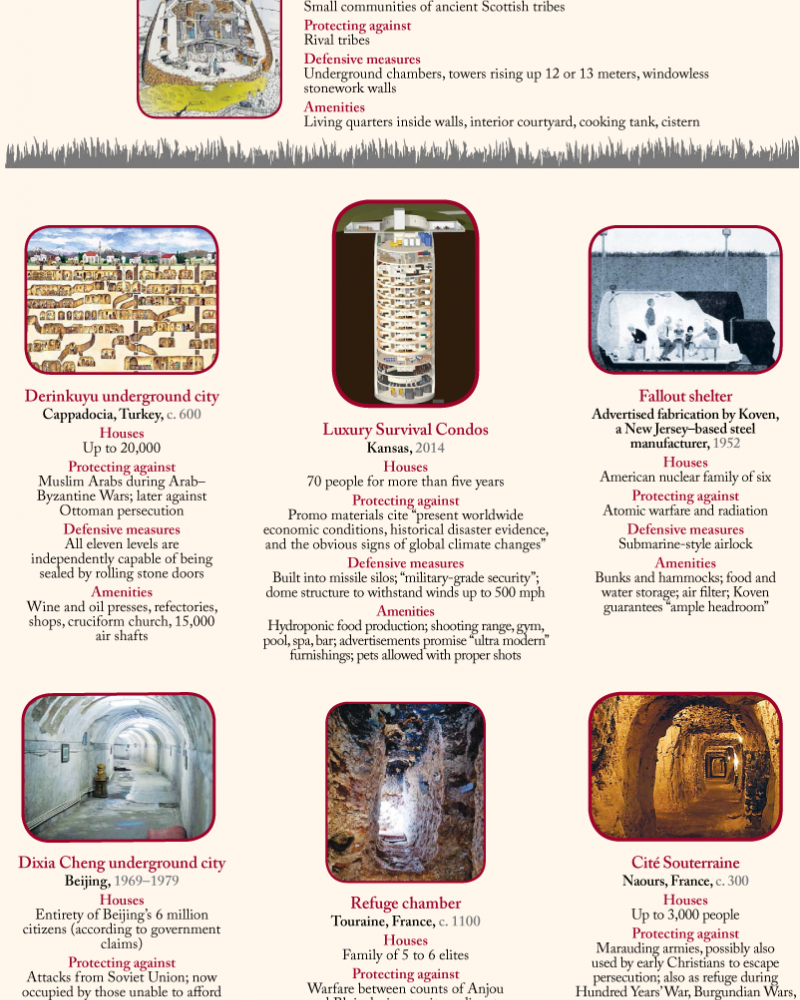Issue Coming Soon
Miscellany
A scientific study found that hurricanes given feminine names tend to be deadlier than those given masculine names; people consider them less risky and take inadequate precautions. “Changing a severe hurricane’s name from Charley to Eloise,” the study notes, “could nearly triple its death toll.”
Miscellany
Plutarch related that news of the Athenians’ brutal defeat at Syracuse during the Peloponnesian Wars first came from a stranger who told the story at a barbershop “as if the Athenians already knew all about it.” When the barber spread the news, city leaders branded him a liar and an agitator. He was “fastened to the wheel and racked a long time.” Official messengers later came with the “actual facts of the whole disaster,” and the barber was released.
Miscellany
The opening of a particle accelerator at Brookhaven National Laboratory in 2000 inspired fears that high-speed collisions might launch a chain reaction that could turn the earth into a hyperdense sphere about one hundred meters across. A risk calculation determined this to be unlikely; if the collider were to run for ten years, the chance was no greater than 1 in 50 million. “The word unlikely, however many times it is repeated,” wrote concerned scientists, “just isn’t enough to assuage our fears of this total disaster.”
Miscellany
The first mass extinction on earth occurred around 2.5 billion years ago, when a photosynthesizing bacterium appeared and released so much oxygen into the atmosphere that anaerobic life was largely wiped out. This is often called the Great Oxygenation Event, the Oxygen Catastrophe, or the Oxygen Holocaust.
Pages






